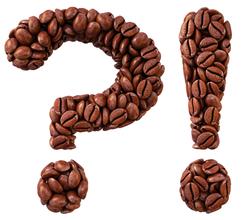Introduction to the flavor and taste characteristics of Indonesian Mantenin coffee beans with bright sour flavor
It is customary to call coffee from Sumatra Mantenin, which is neither scientific nor confusing. The coffee produced by the Batak people in Lake Toba or the Lindong Mountains in north-central Sumatra is mostly grown without shade, and is mainly treated by half-sun or sun treatment, with obvious herbal and soil flavor, low acidity and muggy aroma, which is the most important feature of Mantenin coffee, so it is called Mantenin coffee. In the northernmost area of Sumatra, Tawahu or Achelle is planted by another Gaga friend in the traditional shade method, which is mainly washed or semi-washed, with a bright sour flavor and a light fragrance tone. American boutique coffee industry mostly calls this area coffee Axie Coffee, Gayoushan Coffee or Tawahu Coffee.
In short, the general "Mantenin" coffee has the unique fragrance of herbs and trees, and the particle size is relatively irregular; the "Golden Mantenin" coffee of Indonesia's Pwangni Coffee Company or the "Jinding Mantenin" coffee of the Japanese company are mellow and bright. Caramel sweet smell is more intense, fruit acid taste is also bright and elegant, almost no Mantenin herbal flavor, soil flavor and wood flavor. Mantenin coffee is suitable for medium-and low-grade roasting, which can reduce miscellaneous taste, while gold manning has a wider roasting range, which is neither Indonesian place name, producing area name, port name, nor coffee variety name, but a mispronunciation of Mandailing, an ethnic group formerly living in Sumatra. During World War II, a Japanese soldier was drinking coffee in Sibolga, central Tapanuli, Indonesia. When he asked the shopkeeper what kind of coffee he was drinking, the boss thought he was from, so he replied "Mandailing". When the Japanese soldier returned home after the war, he remembered that the coffee with a special flavor at that time seemed to be called "Mantenin." in 1968, Nomura Trading Company in Osaka, Japan visited the Indonesian company N. V. Pawani Medan, imported 15000 kilograms of Sumatra mantenin coffee, and was very popular after it was put on the Japanese market. since then, Mantenin Coffee and Pwangni Coffee Company have gained great fame.
Established in 1957, Indonesia's N.V. Pawani Medan (PWN) is the first Indonesian company to export coffee, rubber, cinnamon, cloves and patchouli oil. It is the first Indonesian company to export coffee from North Sumatra and the first company to make "Manning Coffee" famous in Japan. Since 1977, the company has focused on the export of premium coffee beans, Sumatran Arabica coffee Manning I and Robusta coffee AP-I II, mainly to Japan, Taiwan and the United States, of which Japan and Taiwan account for more than 95%. In Japan and Taiwan, "PWN" has become synonymous with "quality assurance". The Pwangni Coffee Company held the "Golden Golden Mandheling" trademark, so the Japanese company had to register the "Jinding Gold Top Mandheling" trademark. Coffee cultivation in Indonesia began at the end of the 17th century and was transplanted from India by the Dutch East India Company to Jakarta in Java. The variety was Arabica Typica, and soon spread to Sumatra in the northwest of Java and Sulawesi in the northeast. Tippika was withered by a massive rust outbreak in Java in the 1880s, and the Dutch changed to the disease-resistant Robsta. To this day, Robusta is still the main source of Indonesian coffee, accounting for 90% of Indonesian coffee. it is grown all over Java and Bali. The elegant Arabica is mainly distributed in the high-altitude areas of northern Sumatra, Sulawesi and Java, accounting for only about 10% of Indonesia's coffee production. However, Indonesian coffee, such as Mantenin, Golden Manning, Jinding Mantenin, Tawahu, Gayou Mountain, Axie, Sulawesi, aged Mantenin and Java Old Brown, have made Indonesian coffee famous in the boutique coffee world for decades.

Important Notice :
前街咖啡 FrontStreet Coffee has moved to new addredd:
FrontStreet Coffee Address: 315,Donghua East Road,GuangZhou
Tel:020 38364473
- Prev

Ninety + Juliet (Juliette) N2 L39 Milk Chocolate and Flower mixed flavors
In the Rosa Manor of Ninety +, there is a road from the farm house to the coffee dry area. When you walk on this road, you will see a row of extraordinarily beautiful mandala. In the evening, these bell-shaped flowers give off an intoxicating aroma that only lasts for an hour or so. We jokingly call this fragrance of flowers the beauty of the night. About the mandala and
- Next

Introduction to the flavor and taste characteristics of Panamanian Pokuit butterfly coffee beans with honey sweetness
On the basis of very excellent quality, the very people-friendly price makes this coffee bean cost-effective. What is special about this coffee bean is that it is made up of three varieties, of which 40% are rosy summer varieties, giving this coffee a distinct rosy summer flavor. According to the information obtained, due to the historical reasons of the manor, in order to pursue yield at that time, the early rose summer varieties and
Related
- Detailed explanation of Jadeite planting Land in Panamanian Jadeite Manor introduction to the grading system of Jadeite competitive bidding, Red bid, Green bid and Rose Summer
- Story of Coffee planting in Brenka region of Costa Rica Stonehenge Manor anaerobic heavy honey treatment of flavor mouth
- What's on the barrel of Blue Mountain Coffee beans?
- Can American coffee also pull flowers? How to use hot American style to pull out a good-looking pattern?
- Can you make a cold extract with coffee beans? What is the right proportion for cold-extracted coffee formula?
- Indonesian PWN Gold Mandrine Coffee Origin Features Flavor How to Chong? Mandolin coffee is American.
- A brief introduction to the flavor characteristics of Brazilian yellow bourbon coffee beans
- What is the effect of different water quality on the flavor of cold-extracted coffee? What kind of water is best for brewing coffee?
- Why do you think of Rose Summer whenever you mention Panamanian coffee?
- Introduction to the characteristics of authentic blue mountain coffee bean producing areas? What is the CIB Coffee Authority in Jamaica?

